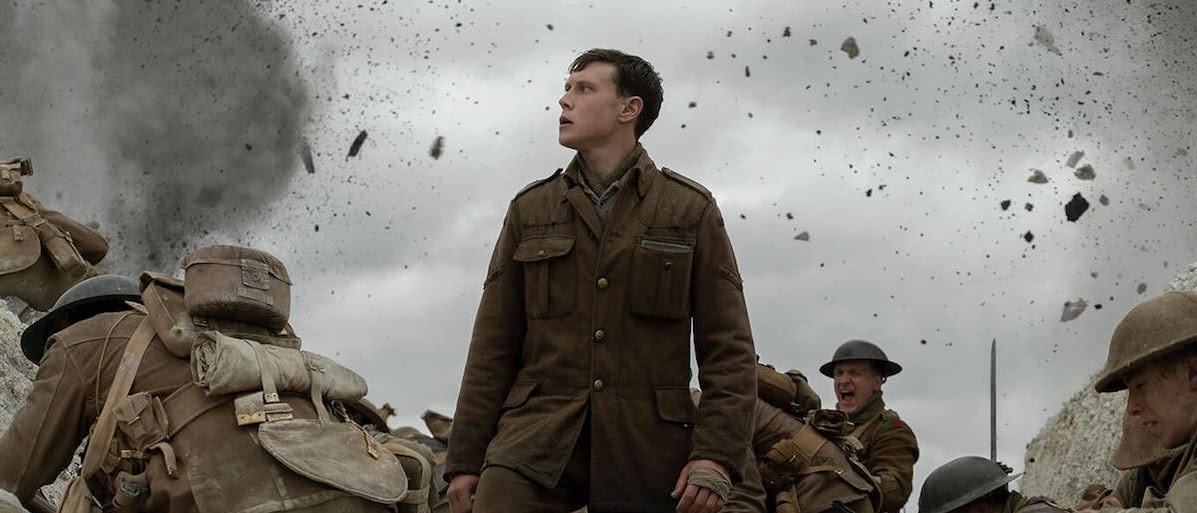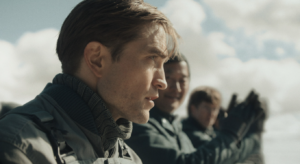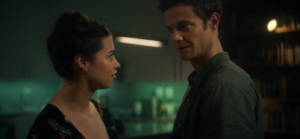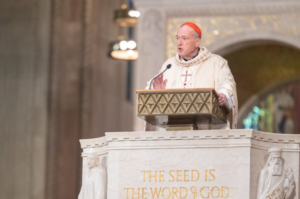1917: Film Review

Image courtesy of Universal Pictures
By Katie Van Lew
The film 1917, directed by Sam Mendes, was released to the United States on December 25, 2019. Since its release, the film has accumulated thirty distinguished award nominations, including nominations from the Academy Awards, the British Academy Film Awards, and the Golden Globes, receiving a nomination for Best Picture at the Academy Awards.
The film immerses the viewer in the terrors of the First World War. The film 1917 begins with two British soldiers, Lance Corporal Blake and Lance Corporal Schofield, in casual banter, walking through the trenches to receive a mission. Unbeknownst to the two soldiers, the mission would change their lives, and the lives of 1,600 men, forever. The general informs the two soldiers that the Germans have retreated, and were planning to overwhelm the British troops preparing to attack in Eastern France. As a result, the men were given mere hours to travel to the Hindenburg Line, where they would deliver a message to the commander of the Second Battalion of the Devonshire Regiment to call off their attack on the Germans. If successful, Blake and Schofield would be saving the lives of 1,600 men, including Blake’s brother.
The film, inspired by the personal experiences of Mendes’ grandfather, concludes with a tribute to his grandfather who was a veteran of World War I. Mendes’ interpretation has produced a visual of the first world war, unlike any film prior. Packed with moments encapsulating the raw reality of war, intertwined with emotional intensity, the audience endures a simulated experience of the battlefield. Since the plot is driven by the pressure of time, the movement is rather rapid, with scenes unfolding and shifting perpetually before the viewer’s eyes. The camera, which appears to capture the film in one continuous shot, never ceases to break from the upheaval of the war; thus, the audience is left in a perpetual state of anxiety as they await the fate of the soldiers.
Throughout the film, the camera tediously follows every movement of Blake and Schofield, creating an illusion of a first-hand experience of the war. The camera captures the sense of urgency, as the camera follows the soldiers in their race against time. Rapidly, the camera pivots from Blake and Schofield, to the reality of war: tragic loss and inhumanity.
Thomas Newman, who scored Mendes’ film American Beauty (1999) sought to balance the imagery with music that did not necessarily highlight the gruesomeness of the war, but rather created an effortless balance. The music in the film is curated so that the orchestra does not overwhelm the viewer, but instead, builds intensity, and at times, elicits a sense of vulnerability within the viewer. As the subject matter of the film is at times hard to watch, the music accompanied the trauma of war, yet did not overshadow the tragic events that unfold.
Actors George Mackay and Dean Charles-Chapman deliver a surreal performance of comradery, exhibiting humanity amidst a merciless war. The dialogue between the two soldiers, interspersed with light-hearted banter, tapers off as the plot progresses, and the harsh reality of the war settles in with the soldiers, while simultaneously hindering the audience of words to process the calamity that unfolds.
The film does not romanticize the war, but rather pays reverence to the phenomenon that countless men had to endure. Cinematically, it was a beautifully tragic representation of a mere glimpse into World War I.





